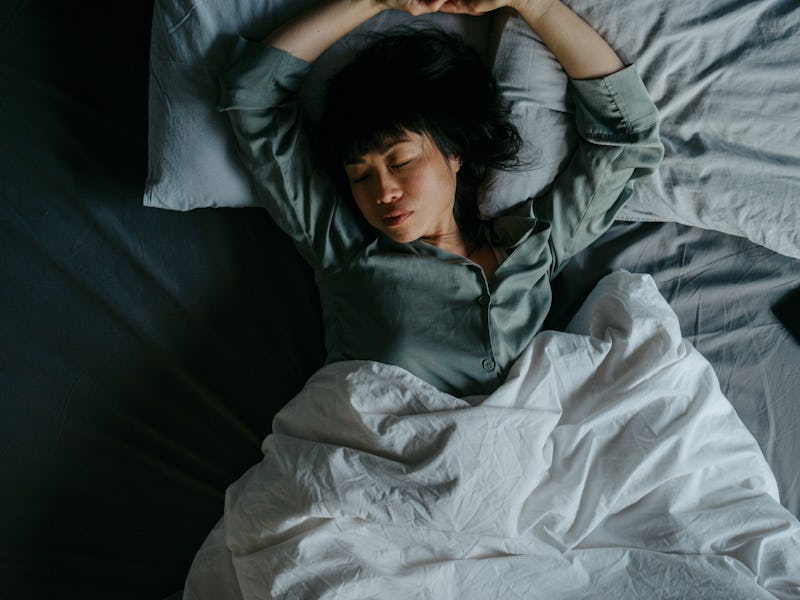This Big Study Found A Sleep Aid Hiding In Plain Sight
The path to better sleep might be more straightforward than we all thought.

The secret to great sleep might be easier than we thought — if you have the appetite for it. A recent study in the journal Frontiers in Nutrition explores a link between fruit and vegetable intake and sleep duration, with not-so-shocking results. There might be a new sleep aid for us all — and you can find it at the supermarket.
The paper looked at data from over 5,000 adults in Finland who recorded their sleep and dietary habits in a questionnaire. The authors, a team of public health scientists from the University of Helsinki, National Institute for Health and Welfare, and Turku University of Applied Sciences, observed that not only did plentiful produce consumption impact sleep, but so did the types of fruits and vegetables consumed.
The study stratified participants based on the World Health Organization’s recommendation that adults sleep between 7 and 9 hours per day. Normal sleepers slept for 7.7 hours on average, while long sleepers had a mean of 10 hours and short sleepers of 6 hours. After adjusting for confounding factors like age, gender, and socioeconomic standing, the team observed that normal sleepers consumed more fruits and vegetables than both short and long sleepers.
Though this study was observational and didn’t investigate biological mechanisms, the authors still present possible explanations. They suggest that those who have healthy sleep habits are more likely than those who get insufficient or excess sleep to adopt healthy lifestyles, including a regular exercise regimen and produce-rich diet.
Is there anything leafy greens can’t do?
They also point to hormonal mechanisms behind specific fruits and vegetables. Cherries, kiwi, tomatoes, and cucumber, they note in the paper, all contain high levels of melatonin, which humans create to regulate circadian rhythm and sleep patterns. However, the most significant associations they saw between sleep duration and specific food groups came down to root, seeded, and leafy green vegetables.
This study aligns with those of other papers, like this one from 2023 in the International Journal of Behavioral Nutrition and Physical Activity, which found that teens ate less produce after a poor night’s sleep. Still, it has its limitations. Since the data came from self-reported questionnaires, it’s not guaranteed that all the information is completely accurate. Also, the authors note that the association between sleep and produce intake only became statistically significant after excluding people they described as energy under-reporters in a sensitivity analysis.
That said, if you’re going to switch your dinner sides from french fries to kale and your pre-bedtime sunday to fruit salad, you’re likely to see all sorts of benefits, from a strengthened microbiome, healthier heart, and even longer life. If you get a few more zzzs on top of it all — well, that’s a melatonin-rich cherry on top.